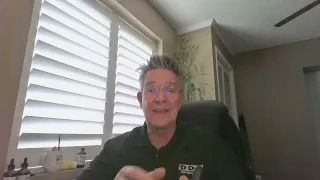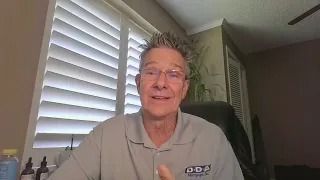Reverse Mortgage Blog | DDA Mortgage
Mortgage News and Advice
Click on any of our videos below to learn more about reverse mortgages. Subscribe to our blog and get notified of new videos.

• 12-Month Bridge Loans with interest-only payments • Cash-Out Refis, Purchase Loans, Second Liens, and Portfolio Loans • Nationwide lending on non-owner occupied residential properties, including condos • No FICO minimum – We welcome credit-challenged borrowers • No income or employment verification • No seasoning required • No appraisal contingencies • We fund mid-foreclosure and past bankruptcy deals • Pure asset-based lending – • Closings in as fast as 3–5 days tune in and learn https://www.ddamortgage.com/blog Didier Malagies NMLS #212566 dda mortgage nmls#324329

1. HOA / Condo Association Loans (Most Common) These are commercial loans made directly to the association, not individual unit owners. Typical uses Roof replacement Structural repairs Painting, paving, elevators, plumbing Insurance-driven or reserve shortfalls Key features No lien on individual units Repaid through monthly assessments Terms: 5–20 years Fixed or adjustable rates Can be structured as: Fully amortizing loan Interest-only period upfront Line of credit for phased projects Underwriting looks at Number of units Owner-occupancy ratio Delinquency rate Budget, reserves, and assessment history No personal guarantees from owners 2. Special Assessment Financing (Owner-Friendly Option) Instead of asking owners to write large checks upfront: The association levies a special assessment Owners can finance their portion monthly Reduces resistance and default risk Keeps unit owners on predictable payments This is especially helpful in senior-heavy or fixed-income communities. 3. Reserve Replenishment Loans If reserves were drained for an emergency repair: Association borrows to rebuild reserves Keeps the condo compliant with lender and insurance requirements Helps protect unit values and marketability 4. Florida-Specific Reality (Important) Given your frequent focus on Florida condos, this resonates strongly right now: New structural integrity & reserve requirements Insurance-driven roof timelines Older associations facing multi-million-dollar projects Financing often prevents forced unit sales or assessment shock Many boards don’t realize financing is even an option until it’s explained clearly. 5. How to Position the Conversation (What to Say) You can frame it simply: “Rather than a large one-time special assessment, the association can finance the project and spread the cost over time—keeping dues manageable and protecting property values.” That line alone opens the door. 6. What Lenders Will Usually Ask For Current budget and balance sheet Reserve study (if available) Insurance certificates Delinquency report Project scope and contractor estimate Bottom Line Condo associations do not have to self-fund roofs or major repairs anymore. Financing: Preserves cash Reduces owner pushback Helps boards stay compliant Protects resale values Tune in and learn https://www.ddamortgage.com/blog didier malagies nmls#212566 dda mortgage nmls#324329

There are now more loans with interest rates over 6% than those with rates under 3%. 40% of the volume closed were refinances, and 30% of the loans done were NON-QM loans. There was a 10% drop in mortgage volume at the end of 2025, with a drop in interest rates. With 1.4 trillion in credit card debt, it seems that 1.4 trillion in credit card debt may be the reason for the refinancing. It is interesting that the NON QM loans captured so much of the closed business, and will only grow more in 2026 Popular program is the bank statement loan, which does not require tax returns, 1099's or W-2s If you are looking at doing a rate term refinance, remember to look for a 2% drop with no points tune in and learn https://www.ddamortgage.com/blog didier malagies nmls#212566 dda mortgage nmls#324329

💡 Option 1 — Cash-Out Refinance Meaning: Replace your current mortgage with a larger loan and take the difference in cash. Bankrate Often lower interest rate than a second mortgage because it replaces your first mortgage. Rocket Mortgage Can consolidate debt (e.g., high-interest credit cards) into one loan. Bankrate If you refinance to a lower rate, you can reduce monthly payments while getting cash. Sunflower Bank When it might make sense: ✔ You currently have a higher interest mortgage (e.g., 7%+) and could refinance into ~6% ✔ You want a single payment ✔ You’re using the cash for productive purposes (debt consolidation, home improvements) 🪪 Option 2 — Second Mortgage / Home Equity Loan (HELOC) Meaning: Take out a loan on top of your existing mortgage without replacing it. Better Mortgag Keeps your current mortgage rate and terms if they’re favorable. Better Mortgage You borrow only what you want — no resetting your main mortgage. Often easier/faster to access cash than a full refinance. 🔁 Option 3 — Reverse Mortgage Meaning: Available only if you are typically 62+ — you borrow against home equity and don’t make monthly principal/interest payments. Balance is due when you move or pass. FHA Can provide steady cash flow or a lump sum with no monthly mortgage payments. Useful in retirement when income is fixed. When it might make sense: ✔ You are retiree near retirement ✔ You want to boost retirement income without monthly payments ✔ You don’t plan to leave the home as a large inheritance 📊 Which Option Should You Consider (High-Level Guidance) ➡ If your goal is lower monthly payments + access to cash: → Cash-out refinance could be ideal if today’s rates are lower than your current mortgage. ➡ If you want cash but want to keep a great existing rate: → Second mortgage or HELOC may be better than resetting your core mortgage. ➡ If you are 62+ and need income without monthly payments: → Reverse mortgage might be worth exploring but only with deep planning (especially for heirs). 🧠 Bottom Line (2026 Real-World Thinking) ✔ Mortgage rates are lower than recent highs but not back to historic lows, meaning refinancing could still save money if your current rate is significantly higher than ~6%. Rocket Mortgage ✔ Cash-out refinance is often cheaper than a second mortgage because of lower interest, but you must be okay restarting your loan term. Rocket Mortgage ✔ Reverse mortgages are specialized tools — great for some retirees but not suited to everyone. FHA tune in and learn https://www.ddamortgage.com/blog didier malagies nmls#212566 dda mortgage nmls#324329

When someone has lived in a home for many years, their property taxes are often artificially low because of long-standing exemptions and assessment caps (like Florida’s Save Our Homes). If you close in January of the following year, here’s what happens: What you get at closing Property taxes are paid in arrears At a January closing, the tax proration is based on the prior year’s tax bill That bill still reflects: The long-term owner’s capped assessment Their homestead exemption As the buyer, you effectively benefit from those lower taxes for that entire year Why the increase doesn’t hit right away The county does not immediately reassess at closing The new assessed value is set as of January 1 of the year after the sale The higher tax bill is issued the following year Timeline example January 2026 – You close on the home All of 2026 – Taxes are based on the prior owner’s low, capped value November 2026 – You receive the first tax bill, still using the old assessment January 2027 – Reassessment takes effect at the higher value November 2027 – You receive the higher tax bill Key takeaway You enjoy the lower taxes for the full year after closing The adjustment does not occur until the second year This is why January closings after a long-term owner can look very attractive up front—but the increase is delayed, not eliminated Why this matters Many buyers think the taxes shown at closing are permanent. In reality, they’re just on a one-year lag due to how property tax assessments work. tune in and learn https://www.ddamortgage.com/blog didier malagies nmls#212566 dda mortgage nmls#324329

Here’s what’s really happening and why consumers are confused: Why “low rates & no closing costs” isn’t true Rates aren’t actually low Headline ads often quote temporary buydowns, ARM teaser rates, or perfect-credit scenarios that very few borrowers qualify for. The real, fully indexed 30-year fixed rate is meaningfully higher once you look at actual pricing. “No closing costs” usually means one of three things Lender credits: The borrower pays through a higher interest rate. Seller concessions: Only possible if the seller agrees — not universal. Costs rolled into the loan: Still paid, just financed over time. Rate buydowns are being marketed as permanent 2-1 or 1-0 buydowns lower payments only for the first year or two. Many borrowers don’t realize their payment will increase later. AI-driven and online lenders amplify the issue Automated platforms advertise best-case pricing without explaining: LLPAs DTI adjustments Credit overlays Property type impacts What customers should be told instead (plain truth) There is always a trade-off between rate and costs. If closing costs are “covered,” the rate will be higher. If the rate is lower, the borrower is paying for it upfront. There is no free money — just different ways to pay. How professionals are reframing the conversation Showing side-by-side scenarios: Low rate / higher costs Higher rate / lender credit Focusing on total cost over time, not just the rate Explaining break-even points clearly Given your background in mortgages and rate behavior, this kind of misrepresentation usually shows up late in the process, when the borrower sees the LE and feels misled. If you want, I can help you: tune in and learn https://www.ddamortgage.com/blog didier malagies nmls#212566 dda mortgage nmls#324329

If the **Federal Reserve cuts interest rates by 0.25% and simultaneously restarts a form of quantitative easing (QE) by buying about $40 billion per month of securities, the overall monetary policy stance becomes very accommodative. Here’s what that generally means for interest rates and the broader economy: 📉 1. Short-Term Interest Rates The Fed’s benchmark rate (federal funds rate) directly sets the cost of overnight borrowing between banks. A 0.25% cut lowers that rate, which usually leads to lower short-term borrowing costs throughout the economy — for example on credit cards, variable-rate loans, and some business financing. Yahoo Finance +1 In most markets, short-term yields fall first, because they track the federal funds rate most closely. Reuters 📉 2. Long-Term Interest Rates Purchasing bonds (QE) puts downward pressure on long-term yields. When the Fed buys large amounts of Treasury bills or bonds, it increases demand for them, pushing prices up and yields down. SIEPR This tends to lower mortgage rates, corporate borrowing costs, and yields on long-dated government bonds, though not always as quickly or as much as short-term rates. Bankrate 🤝 3. Combined Effect Rate cuts + QE = dual easing. Rate cuts reduce the cost of short-term credit, and QE often helps bring down long-term rates too. Together, they usually flatten the yield curve (short and long rates both lower). SIEPR Lower rates overall tend to stimulate spending by households and investment by businesses because borrowing is cheaper. Cleveland Federal Reserve 💡 4. Market and Economic Responses Financial markets often interpret such easing as a cue that the Fed wants to support the economy. Stocks may rise and bond yields may fall. Reuters However, if inflation is already above target (as it has been), this accommodative stance could keep long-term inflation elevated or slow the pace of inflation decline. That’s one reason why Fed policymakers are sometimes divided over aggressive easing. Reuters 🔁 5. What This Doesn’t Mean The Fed buying $40 billion in bills right now may technically be labeled something like “reserve management purchases,” and some market analysts argue this may not be classic QE. But whether it’s traditional QE or not, the effect on liquidity and longer-term rates is similar: more Fed demand for government paper equals lower yields. Reuters In simple terms: ✅ Short-term rates will be lower because of the rate cut. ✅ Long-term rates are likely to decline too if the asset purchases are sustained. ➡️ Overall borrowing costs fall across the economy, boosting credit, investment, and spending. ⚠️ But this also risks higher inflation if demand strengthens too much while supply remains constrained. tune in and learn https://www.ddamortgage.com/blog didier malagies nmls#212566 dda mortgage nmls#324329

That is wild — and honestly a sign of where mortgage tech is heading fast. A three-hour closing versus three days used to be unheard of. What likely made it possible: 🚀 Why it happened so fast 1. Automated income/asset verification Lenders now pull bank statements, payroll data, and tax transcripts digitally instead of waiting for uploads. 2. Instant credit + DU/LPA underwriting If everything lines up, AUS can issue an immediate approve/eligible. 3. e-sign + remote online notarization (RON) Cutting out scheduling delays saves days. 4. Title automation Many second mortgages use “property data reports” or streamline title searches that don’t need a full title commitment. 🧩 Why second mortgages close faster than first mortgages They don’t require an appraisal if AVM hits. Fewer compliance disclosures. Title and insurance requirements are lighter. No escrow setup. 📈 Bigger picture The mortgage industry is absolutely racing toward: close-in-a-day loans fully digital underwriting AI-assisted document interpretation more instant approvals for clean files We’re going to see more of what you just experienced—especially for HELOCs and seconds. tune in and learn https://www.ddamortgage.com/blog didier malagies nmls#212566 dda mortgage nmls#324329

✅ Why mortgage rates can rise even when the Fed cuts rates Mortgage rates don’t move directly with the Fed Funds Rate. Instead, they are primarily driven by the 10-year Treasury yield and investor expectations about inflation, recession risk, and future Fed policy. Here are the main reasons this disconnect happens: 1. Markets expected the rate cut already If investors already priced in the Fed’s cut weeks or months beforehand, then the cut itself is old news. When the announcement hits, mortgage rates may not fall—and often rise if the Fed hints at fewer future cuts. 2. Fed cuts can signal economic trouble Sometimes the Fed cuts because the economy is weakening. That can cause: Investors to worry about higher future inflation, or A “risk-off” move where money leaves bonds Both of these drive the 10-year yield UP, which pushes mortgage rates UP even though the Fed cut. 3. Bond investors wanted a bigger cut If markets expect a 0.50% cut but the Fed only delivers 0.25%, that’s seen as “too tight.” Result: 10-year yield jumps Mortgage rates move higher 4. Fed messaging (“forward guidance”) matters more than the cut Example: The Fed cuts today, but says: “We may need to slow or pause future cuts.” That single sentence can raise mortgage rates, even though short-term rates just went lower. 5. Inflation surprises after the cut If new inflation data comes in hot after a Fed cut, the bond market panics → yields go up → mortgage rates go up. Quick summary Fed Cuts Rates Mortgage Rates Move ✔ Expected or priced in Can rise or stay flat ✔ Fed hints at fewer future cuts Often rise ✔ Inflation remains sticky Rise ✔ Economy looks unstable Rise ❗ Only when 10-year yield falls Mortgage rates fall tune in and learn https://www.ddamortgage.com/blog didier malagies nmls#212566 dda mortgage nmls#324329


